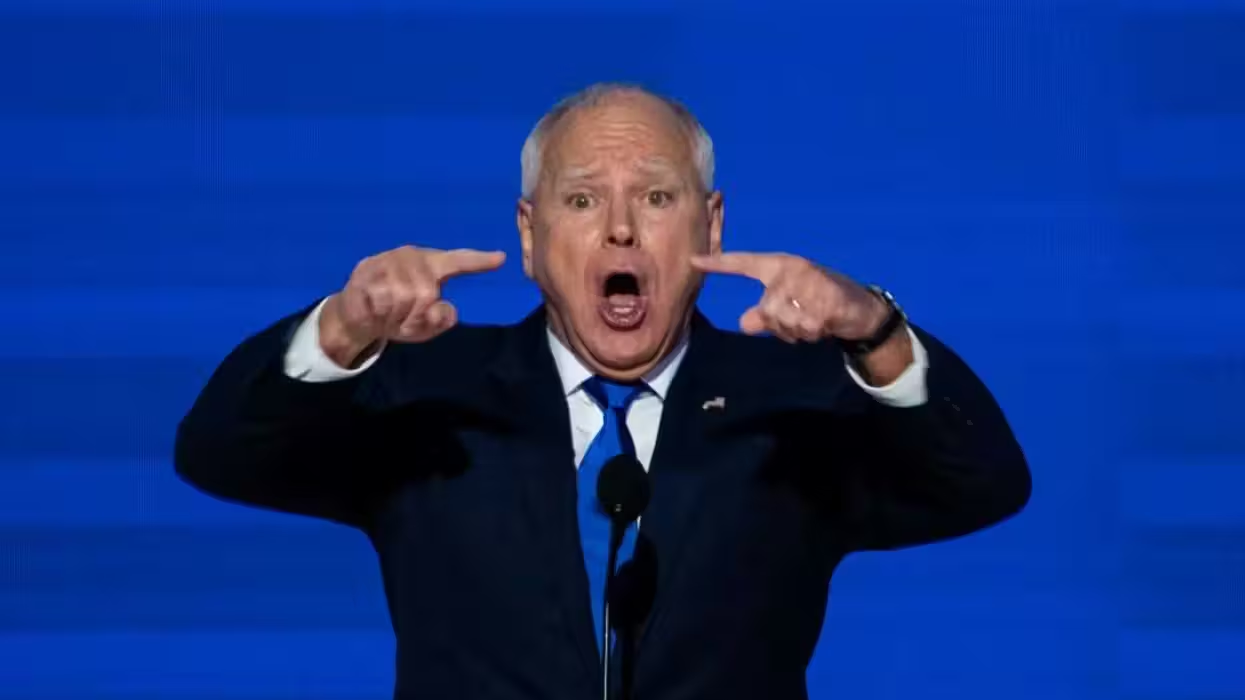
© 2025 Blaze Media LLC. All rights reserved.
"Americans know very little about the new health care law..."
 President Obama. (Official White House Flickr.)
President Obama. (Official White House Flickr.)
WASHINGTON (TheBlaze/AP) -- Millions of people who take advantage of government subsidies to help buy health insurance next year could get stung by surprise tax bills if they don't accurately project their income.
President Barack Obama's new health care law will offer subsidies to help people buy private health insurance on state-based exchanges, if they don't already get coverage through their employers. The subsidies are based on income. The lower your income, the bigger the subsidy.
But the government doesn't know how much money you're going to make next year. And when you apply for the subsidy, this fall, it won't even know how much you're making this year. So, unless you tell the government otherwise, it will rely on the best information it has: your 2012 tax return, filed this spring.
What happens if you or your spouse gets a raise and your family income goes up in 2014? You could end up with a bigger subsidy than you are entitled to. If that happens, the law says you have to pay back at least part of the money when you file your tax return in the spring of 2015.
That could result in smaller tax refunds or surprise tax bills for millions of middle-income families.
Health care providers, advocates and tax experts say the vast majority of Americans know very little about the new health care law, let alone the kind of detailed information many will need to navigate its system of subsidies and penalties.
"They know it's out there," said H&R Block manager Mark Cummings. "But in general, they don't know anything about it."
A draft of the application for insurance asks people to project their 2014 income if their current income is not steady or if they expect it to change. The application runs 15 pages for a three-person family, but nowhere does it warn people that they may have to repay part of the subsidy if their income increases.
There's another wrinkle: The vast majority of taxpayers won't actually receive the subsidies. Instead, the money will be paid directly to insurance companies and consumers will get the benefit in reduced premiums.
 Official White House Flickr
Official White House Flickr
Health care providers and advocates for people who don't have insurance are planning public awareness campaigns to teach people about the health care law and its benefits.
Enroll America, a coalition of health care providers and advocates, is planning a multimillion-dollar campaign using social media, paid advertising and grass-roots organizing to encourage people who don't have insurance to sign up for it, said Anne Filipic, a former Obama White House official who is now president of the organization.
The Obama administration says it, too, is working to educate consumers.
"It's potentially going to come as a shock to individuals who meet that criteria where their income hits a point where they owe money back," said Rep. Charles Boustany, R-La., chairman of the House Ways and Means oversight subcommittee. "The fact is, with variations in income, people could end up owing money back and that will create consternation and problems for them."
The subsidies are available to families with incomes up to 400 percent of the poverty level. This year, four times the poverty level is about $62,000 for a two-person family. For a family of four, it's $94,200.
 Getty Images.
Getty Images.
About 18 million people will be eligible for subsidies, according to the Congressional Budget Office.
If families get bigger subsidies than they are entitled to under the law, the amount they have to repay is capped, based on income and family size. If they get less than they qualify for under the law, the government will pay them the difference in the form of a tax refund.
There are also special rules that protect people who marry or divorce from being required to pay back subsidies just because their marital status changes.
There are four thresholds for repaying the subsidies:
- A family of four making less than $47,000 would have to repay a maximum of $600
- If the same family makes between $47,000 and $70,000, the amount they have to repay is capped at $1,500
- If the same family makes between $70,000 and $94,200, the amount is capped at $2,500
- Families making more than four times the poverty level have to repay the entire subsidy
The total amount of money that taxpayers will have to repay is unclear, but congressional estimates offer some clues.
Twice since the health care law was passed Congress has increased the caps for how much people will have to repay. Combined, the two measures are expected to raise more than $40 billion over the next decade, according to Congress' Joint Committee on Taxation.
--
Follow Becket Adams (@BecketAdams) on Twitter
Featured image Getty Images.
Want to leave a tip?
We answer to you. Help keep our content free of advertisers and big tech censorship by leaving a tip today.
Want to join the conversation?
Already a subscriber?
more stories
Sign up for the Blaze newsletter
By signing up, you agree to our Privacy Policy and Terms of Use, and agree to receive content that may sometimes include advertisements. You may opt out at any time.
Related Content
© 2025 Blaze Media LLC. All rights reserved.
Get the stories that matter most delivered directly to your inbox.
By signing up, you agree to our Privacy Policy and Terms of Use, and agree to receive content that may sometimes include advertisements. You may opt out at any time.






